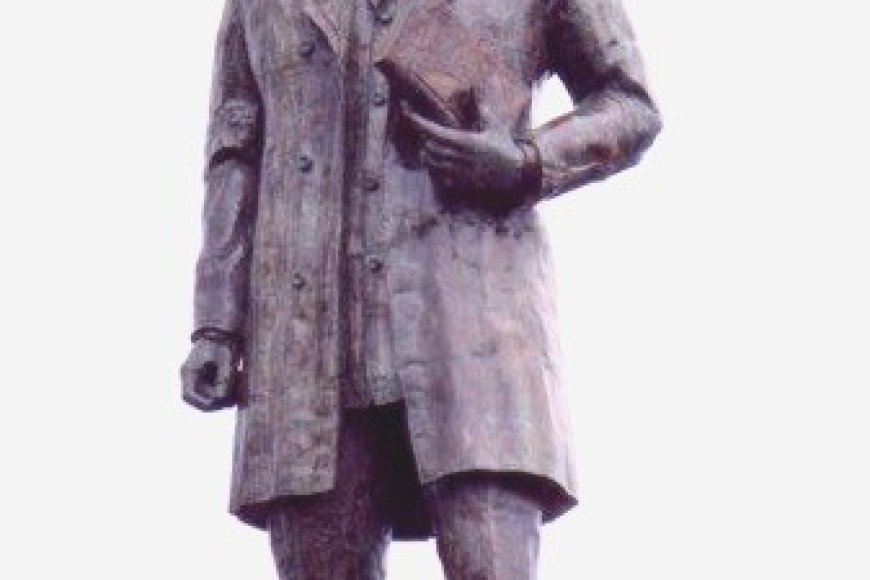Thursday, April 24, 2025 | 2 a.m.
Editor's note: Este artículo está traducido al español.
The 2022 midterms were unlike any other election cycle in which the Democratic Association of Secretaries of State had participated.
The organization, which supports Democratic candidates for the position, has raised $25 million over the past 16 years, according to data collected by ProPublica. Over half of that came during the 2022 cycle.
That campaign featured Republicans who denied the results of the 2020 presidential race, when Democrat Joe Biden narrowly beat incumbent Republican Donald Trump. Trump wrongly claimed the election was marred by fraud, leading to many lawsuits from his supporters — none of which wound up with a favorable court judgment.
Nearly 300 Republicans who denied Biden’s 2020 victory were on ballots in 2022, according to an analysis from The Washington Post, 10 of whom were running to oversee elections in their respective states.
Nevada Secretary of State Cisco Aguilar was one of the Democrats helped by the wave of donations. He narrowly defeated Republican Jim Marchant, who told voters during the primary that “your vote hasn’t counted for decades.”
Three years later, Aguilar now chairs the association.
“Some of the most competitive races in the country were seeing candidates that didn’t believe in our election systems, and so (the association) really stepped up and was a big part of the cycle,” he said. “It was a big part of why I was able to win.”
And he’s not bluffing about the effect the association can have. The group gave nearly $4 million to the organization Safe Accessible Fair Elections (SAFE), which transferred $6 million to its Nevada counterpart that year.
Aguilar, formally announced as the association’s chair April 7, wants to support candidates who are “going to stand up” to attacks on voting accessibility while spreading the word about what secretary of state offices run by Democrats have accomplished across the nation, he said.
But first Aguilar must get the operation running and ready for the 2026 midterms with key races in Michigan, where a Democrat is term-limited, and Georgia, where Republican Secretary of State Brad Raffensperger may run for governor.
“With our democracy under relentless attack, DASS is acting early and decisively,” DASS Interim Executive Director Drew Godinich wrote after Aguilar was named chair. “Secretary Aguilar knows how to win tough races.”
Aguilar compared DASS to a startup company. Right now, it’s figuring out what the agenda for 2026 should be, how it can be executed and then getting the funding for it.
Part of that first step is the Nevada official promoting what’s worked for the Silver State across the country.
Aguilar lists state progress he wants to share: instituting a new statewide voter registration system, increasing accessibility for tribal and rural communities, and expanding online voting to homebound disabled people.
He also doesn’t want potential secretaries to shy away from topics unrelated to elections.
In Nevada, like in other states, the secretary of state handles business registration and similar matters.
“Those are things voters want to hear about,” Aguilar said. “Yes, they want to hear that their democracy is protected, (and) yes, that they’ll have access to the ballot box, but they also want to hear that we’re going to give them an opportunity to have a livelihood.”
Winning close elections also requires cash.
Days before Aguilar stepped into his new role, DASS announced it raised over $600,000 in the first quarter of 2025. That’s an improvement on 2023 and 2024 but still far from the $2.6 million raised in 2022’s first quarter.
“From big wins in Wisconsin to surging donor enthusiasm in 2025, the message is clear: democracy wins,” Godinich wrote after announcing the haul. “With historic support from voters nationwide, DASS is ready to break records this cycle.”
Aguilar is first speaking with the organization’s donors from 2022 to make sure “they’re still on the team” and to answer “questions or clarifying any issues they may have and then getting them on board with the plan.”
Of the $14 million raised that cycle, the most, $3 million, came from billionaire Michael Bloomberg, who was a Republican and then an independent while mayor of New York City in the 2000s. He rejoined the Democratic Party in 2018 before unsuccessfully seeking the presidential nomination.
Another $600,000 came from the Pigotts, the family behind Seattle commercial truck company Paccar, while millions more came from smaller business executives and a litany of labor unions.
More recent Republican actions could also serve as a similar trigger for funding that election deniers were during the last midterm.
After President Donald Trump attempted to reshape elections through an executive order in March, Aguilar and Nevada Attorney General Aaron Ford, who’s also running to oust Republican Gov. Joe Lombardo, sued the administration.
The order would require ID used to register to demonstrate citizenship, something that a driver’s license doesn’t do, and limit when mail ballots can be accepted. Constitutionally, the power to regulate elections has been with Congress and states, not the executive branch.
“We can’t just throw bombs. We must have a real strategy behind what we’re trying to accomplish if we’re going to be successful,” Aguilar said.
“We can work in a bipartisan way … but at the same time, we’re not going to stand by and let somebody walk over us,” he added.
.png)








 English (US) ·
English (US) ·